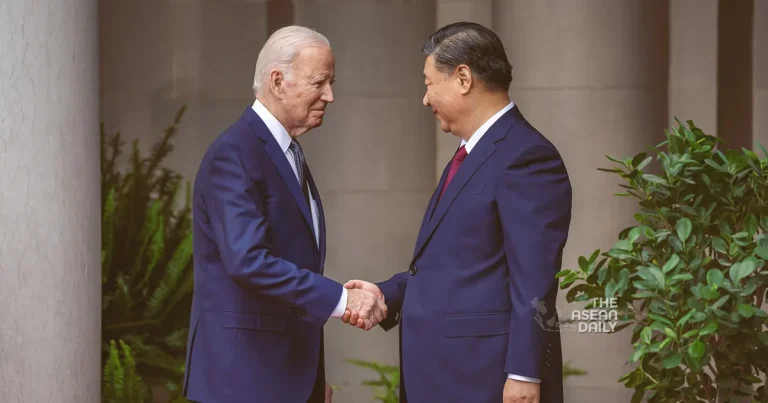3-4-2024 (WASHINGTON) US President Joe Biden and Xi Jinping engage in a conversation on April 2, aiming to manage tensions between the United States and China. This comes as top US officials, Secretary of State Antony Blinken and Treasury Secretary Janet Yellen, prepare to travel to Beijing in the near future. The telephone conversation marks the first direct interaction between the two leaders since their summit in November, which saw a slight improvement in tone, although the long-term rivalry between the world’s two largest economies persists.
Both Blinken and Yellen have expressed a willingness to find areas of cooperation with China while maintaining pressure. Yellen is scheduled to depart in the coming days, while Blinken’s trip is planned for the coming weeks, according to a senior US official. The official, speaking anonymously, stated that “intense competition requires intense diplomacy to manage tensions, address misperceptions, and prevent unintended conflict. And this call is one way to do that.”
Chinese state broadcaster CCTV reported that the two leaders had a “candid and in-depth exchange” on issues of common concern. Xi Jinping, China’s most powerful leader in decades, has solidified his power domestically and adopted a tough approach in Asia. This includes cracking down on freedoms in Hong Kong and engaging in assertive confrontations in the South China Sea, particularly with the Philippines.
However, US observers believe that Xi is keen to reduce friction with the United States as China faces economic challenges. During the California summit, Xi agreed to two key requests from the United States: curbs on precursor chemicals used in the production of fentanyl, a synthetic painkiller contributing to a US overdose epidemic, and the restoration of dialogue between the two militaries to manage crises.
Xi may also perceive an opportunity for cooperation with Biden, who is facing a potential rematch against Donald Trump in the November elections. Trump has consistently portrayed China as a major adversary, and while Biden has maintained or even accelerated some of Trump’s tough measures, such as the ban on high-end semiconductor exports, his administration has also identified areas of common interest, such as combatting climate change.
The US official emphasized that the call served more as a “checking in” rather than a platform for new policy outcomes. Biden intended to raise familiar concerns, including China’s trade practices and regional tensions. He also planned to reiterate the importance of peace and stability across the Taiwan Strait, particularly ahead of the inauguration of President-elect Lai Ching-te on May 20.
While China has denounced Lai, who supports a separate identity for Taiwan, US officials cautiously believe that China’s military movements preceding the inauguration will not exceed past actions. Biden also intended to address “destabilizing” actions in the South China Sea, including recent dangerous incidents involving Chinese forces and the Philippines.
In addition to maintaining dialogue with China, the Biden administration has placed a strong emphasis on supporting allies. Japanese Prime Minister Fumio Kishida is scheduled to pay a state visit next week, and Philippine President Ferdinand Marcos will join for three-way talks in Washington. Blinken previously visited the Philippines last month, reaffirming US commitments to defend the ally.
Blinken and Yellen’s upcoming visits to China mark their second trips to the country in less than a year, indicating a return to more regular interactions between the two powers. Blinken’s visit last year was the highest-ranking US visit in five years, following the height of tensions under the Trump administration and disruptions caused by the COVID-19 pandemic.
This extensive diplomatic engagement with China contrasts with Biden’s approach to Russian President Vladimir Putin, whom he has avoided since the invasion of Ukraine. The United States is growing increasingly concerned about China’s efforts to assist Russia in rebuilding its military-industrial base, considering it a risk to European security.




